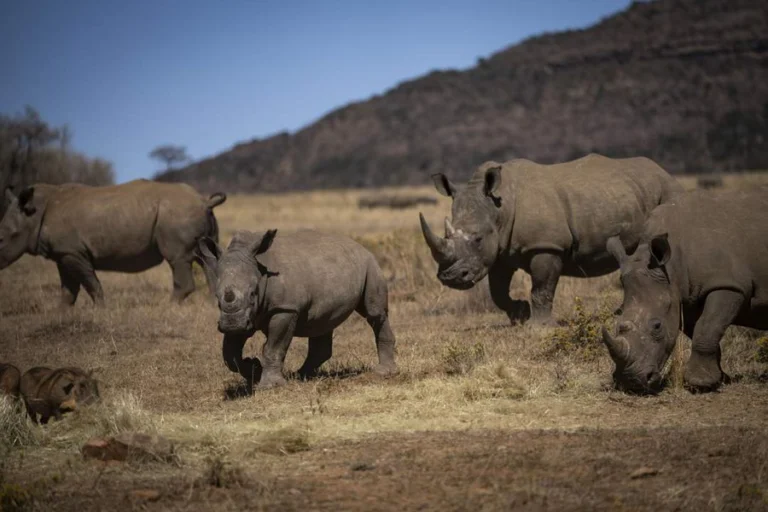South Africa Uses Radioactive Isotopes to Deter Rhino Horn Trafficking
South African scientists are using radioactive isotopes to make rhino horns detectable at international checkpoints, aiming to disrupt illegal trade without harming the animals.

New radioactive isotope injection makes rhino horns detectable at airports and borders, part of a South African conservation effort. Photo: @News24
August 2, 2025 Hour: 1:42 am
South African researchers have launched a novel anti-poaching strategy: injecting rhino horns with radioactive isotopes detectable at border controls, aiming to disrupt illegal trade without endangering the animals.
RELATED:
International Day of the African Woman: A Call for Solidarity, Dignity, and Decolonial Struggle
In a new effort to combat wildlife trafficking, the University of the Witwatersrand in Johannesburg has begun injecting rhinoceros horns with small amounts of radioactive isotopes. The Rhisotope Project, developed in collaboration with nuclear authorities and conservationists, aims to make trafficked horns detectable by standard radiation scanners at airports and border crossings.
The approach blends nuclear science with conservation, responding to a crisis that traditional methods have struggled to contain. Following a pilot phase involving about 20 rhinos, five animals were injected this week in the project’s official launch.
James Larkin, chief scientific officer of the Rhisotope Project, stated: “We have demonstrated, beyond scientific doubt, that the process is completely safe for the animal and effective in making the horn detectable through international customs nuclear security systems.” He added that, “Even a single horn with significantly lower levels of radioactivity than what will be used in practice successfully triggered alarms in radiation detectors.”
According to Larkin, the tests also showed that horns could be detected even when hidden inside full 40-foot shipping containers, a common method used in transnational wildlife smuggling.
The university is now urging private wildlife reserves and national conservation bodies to adopt the method as part of a broader deterrent strategy.
The initiative comes amid ongoing concern over the dramatic decline in rhino populations. The International Union for Conservation of Nature (IUCN) estimates that global rhino numbers have fallen from 500,000 in the early 20th century to around 27,000 today. South Africa holds the largest share, with approximately 16,000 rhinos—yet loses about 500 each year to poaching.
By harnessing nuclear science in conservation, the Rhisotope Project offers a novel deterrent against trafficking networks. Its architects hope widespread adoption will significantly strengthen border detection and reduce the financial incentives driving rhino poaching—much of which is fueled by international demand far beyond African borders.
Author: MK
Source: The Guardian






